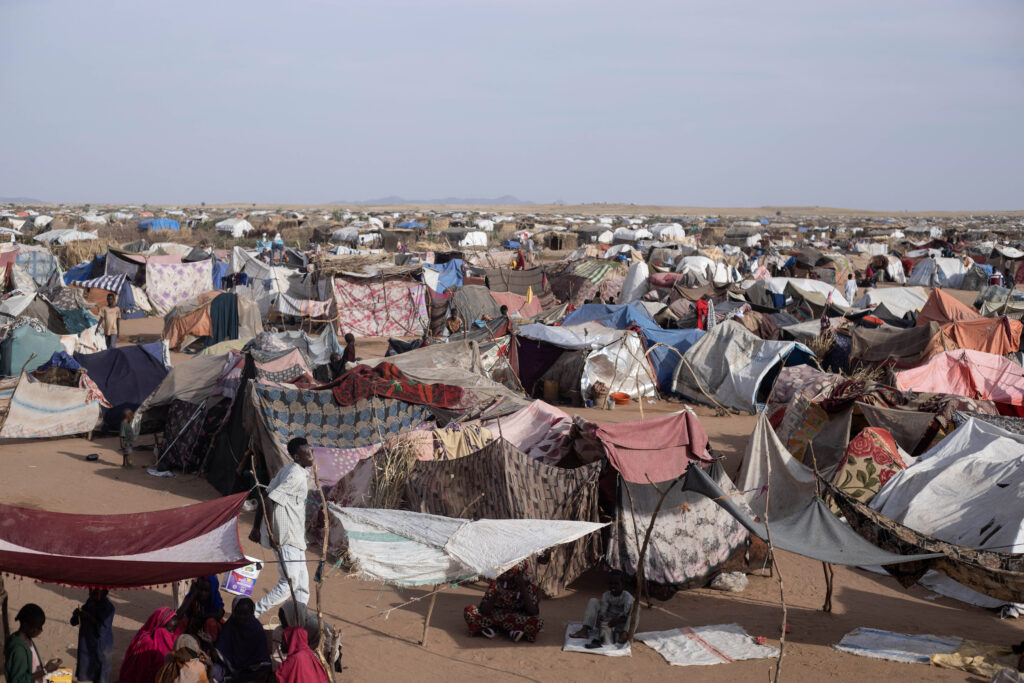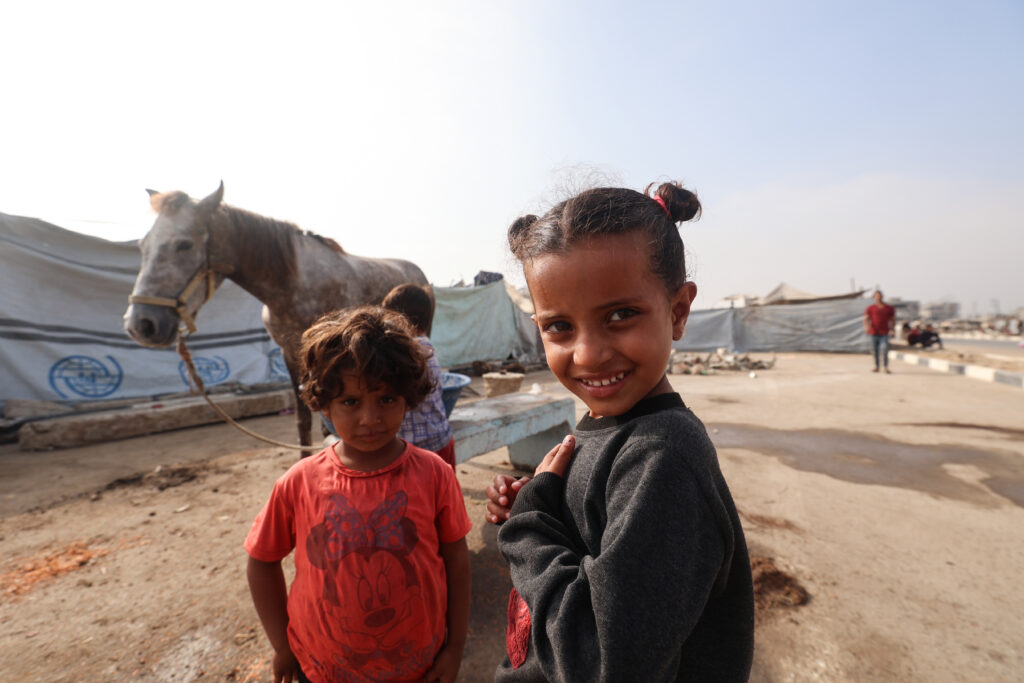AFP Asia Business
The Sudanese who told the world what happened in El-Fasher
“Sixteen killed.” “Seven killed.” “Thirty-one killed.” “People are eating cowhide to survive.” “The bombs are getting closer.” “They’re shooting people trying to run away.”These were the grim updates shared with AFP’s veteran Sudan correspondent Abdelmoneim Abu Idris Ali by people trapped in the 18-month-long siege of El-Fasher, a city overrun by the paramilitary Rapid Support Forces (RSF) two weeks ago.Throughout the siege and ensuing battle, it was thanks to ordinary civilians that AFP and other news organisations were able to form a picture of what was happening there.They were Dr Omar Selik, Dr Adam Ibrahim Ismail, Sheikh Moussa and activist Mohamed Issa — men who relayed vital information from a city mostly cut off from communications.They have all since been killed.Until their deaths they played a crucial but, for security reasons, anonymous role in documenting Sudan’s two-year war between the army and the RSF.Ismail, a young physician, was detained by RSF fighters on October 26 as he tried to flee the city.He was shot dead the following day.Until his last moments, Ismail had been treating “the wounded and the sick” at the Saudi Hospital, El-Fasher’s last functioning medical facility, according to the Sudanese Doctors’ Union.AFP’s Abu Idris Ali learned of Ismail’s death through that statement, having spoken to him only days earlier.”His voice was weary,” Abu Idris Ali recalled from Port Sudan.”Every time we ended a call, he said goodbye as if it might be the last time.”- ‘War machine’ -In September, Abu Idris Ali had already lost three other local sources — people who answered his calls and questions whenever communications allowed.They were killed in a drone strike on a mosque in El-Fasher on September 16, which killed at least 75 people. “Their voices painted a picture of El-Fasher,” he said.”Through them, I heard the groans of the wounded, the sorrow of the bereaved, the pain of those crushed under the war machine.”Before the war broke out in April 2023, AFP journalists criss-crossed the vast country, regularly visiting far-flung areas of Darfur.It was there that Abu Idris Ali first met Sheikh Moussa, who opened the door to his modest hut in 2006, beginning a two-decade-long friendship.Though he never met the tireless Dr Selik or the fiery 28-year-old Mohamed Issa, Abu Idris Ali said, “their voices ring in my ear every day.” Dr Selik, a kind-hearted medic who acted as a key source for journalists worldwide, witnessed the collapse of El-Fasher’s health system before his own demise.Hospitals were shelled, shuttered, or emptied of supplies, yet he continued to work tirelessly. “He always tried to hide the tinge of sadness in his voice when he gave me toll figures,” Abu Idris Ali recalled. “He spoke like he was talking to a patient’s family, breaking the news of the death of a loved one.” Fearful for his own family, he sent them to safety while staying behind to save lives. Since his death, other doctors have taken up the mantle, but bombs fell daily, striking hospitals and killing medical staff.- ‘Another kind of grief’ -Only days before his death, activist Issa told AFP he had fled the famine-hit Abu Shouk displacement camp, overrun by the RSF. At 28, after months of crossing frontlines to deliver food, water and medicine to trapped families, he was killed. “Every time I asked him what was happening in the city, his voice would ring out boisterous: ‘nothing bad inshallah, I’m a little far away but I’ll go find out for you!'” Abu Idris Ali said. “You couldn’t stop him — and off he went.”Sheikh Moussa had been uprooted from his South Darfur village 22 years ago by the Janjaweed militia, from which the RSF would end up descending.He spent the rest of his life in refugee camps. “Violence broke out over and over outside his door, yet his laugh never faded,” Abu Idris Ali recalled. When bombs rained down on El-Fasher, Sheikh Moussa “would speak endlessly of the pain his people were facing, but if you ever asked him how he was, he would only ever say: al-hamdulillah, thank God”.”Every phone call, I could see him, always sitting cross-legged in the shade outside his door, always in a blindingly white jalabiya robe and matching prayer cap, always smiling despite the horrors around him.”Sheikh Moussa never made it home to his village, between El-Fasher and Nyala, the South Darfur state capital. “Many of those 75 people gathered in that mosque had run for their lives just days before, but an RSF drone showed them there was no fleeing death,” Abu Idris said.”Every death is a tragedy, one we are accustomed to reporting. Yet it is another kind of grief when it is someone you have broken bread with, someone whose voice you heard every day.”
US envoy Kushner in Jerusalem to press Gaza truce
US envoy Jared Kushner met with Israeli Prime Minister Benjamin Netanyahu in Jerusalem on Monday as Washington pressed efforts to ensure the fragile Gaza ceasefire holds.The truce, in effect since October 10, has largely halted the war that erupted after Hamas’s surprise attack on Israel on October 7, 2023.As part of its first stage, a series of prisoner and hostage exchanges have taken place in recent weeks.Netanyahu’s office confirmed his meeting with Kushner but did not provide further details.Israeli media said his visit coincided with ongoing US efforts to stabilise the truce and lay groundwork for its next phase.The second stage of the truce aims to tackle some of the most sensitive issues: Hamas’s disarmament, Gaza reconstruction, and the withdrawal of Israeli forces.Hamas has repeatedly insisted that giving up its weapons is a red line.Plans also include deploying an “international stabilisation force” coordinated by US troops to maintain security across the territory.Egypt, Qatar and Turkey are potential participants, but the United Arab Emirates has indicated it is unlikely to join without a clear operational framework.”Under such circumstances, the UAE will probably not participate in such a force,” Emirati presidential adviser Anwar Gargash told the Abu Dhabi Strategic Debate Forum on Monday.Since the truce began, Hamas has returned all 20 living hostages and the remains of 24 captives, including 21 Israelis. Four bodies of hostages killed in the October 2023 attack remain in Gaza.- ‘We still do not feel safe’ -In exchange, Israel has freed nearly 2,000 prisoners and returned 315 bodies of Palestinian captives.The latest of those were the remains of 15 Palestinians handed over by Israel on Monday after Hamas a day earlier returned the remains of Lieutenant Hadar Goldin, killed in the 2014 Gaza war.Goldin, killed while attempting to destroy Hamas tunnels near Rafah, had been missing for 11 years.”Time has stood still. It still feels like he just left and is already coming back,” his sister Ayelet Goldin said in a statement on Monday.”How do you process fighting for a brother who’s gone? How do you fight for a soldier who went into battle, fighting to bring him home, when in reality he’ll return in a casket? How are you supposed to feel? I still don’t know,” she said.Despite the progress in hostage returns, Gazans remain anxious about their future.”We still do not feel safe. Shooting continues … we try to protect our children from psychological trauma and to help them forget the war and its effects,” said Salma Abu Shawish, 40, a resident of Al-Bureij refugee camp in central Gaza.”Life in Gaza is hard. We still lack food, and many families remain homeless. We only wish this nightmare would stop and never return.”Israel and Hamas continue to accuse each other of violating the ceasefire.On Monday, the Israeli military said it killed two militants who approached the so-called “Yellow Line,” the boundary beyond which Israeli forces hold their positions in Gaza.


